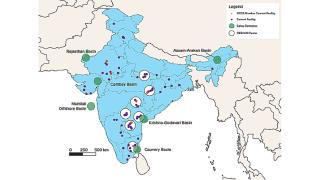The safe disposal of hydrofluorocarbons, present in end-of-service refrigerants, is key in helping to prevent excessive levels of global warming in the future. Cement kilns provide one way of dealing with these harmful substances. Successfully implemented in Japan for over three decades, other Asian countries such as India and Indonesia are now following. By Dr Vincent Aloysius, INSEE Ecocycle Co Ltd, Thailand.
The sense of euphoria surrounding the Kigali amendment to the Montreal Protocol has somewhat subsided now. Last October the news broke that 170 countries had successfully negotiated an amendment to the Montreal Protocol Treaty and agreed to eliminate 90 per cent of hydrofluorocarbons (HFCs) present in the world. HFCs typically have a global warming potential 10,000 times higher than carbon dioxide, and with this treaty, 0.5˚C of future global temperature rise can be avoided.
